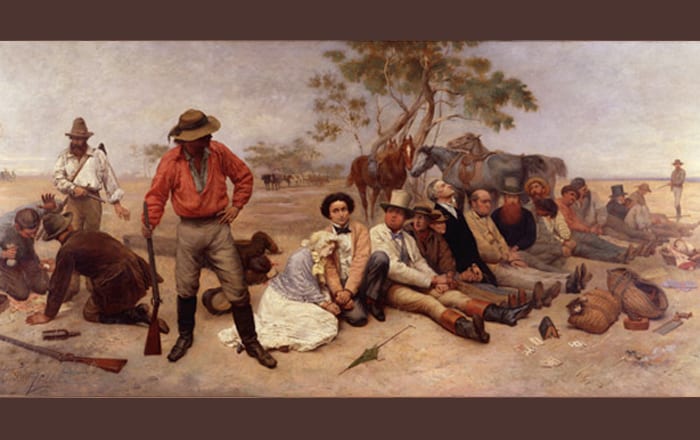
by Paul Dail
Devil’s advocate: A person who, given a certain issue, takes a position he/she does not necessarily agree with—or simply an alternative position from the accepted norm—for the sake of debate or to explore the thought further.
A few days ago, I wrote an article about a revised version of a Utah law allowing police to impound vehicles if they are being driven without insurance. While it seems like the new law adds additional steps to ensure impoundment won’t occur simply because of a database error, the devil’s advocate in me wonders if this doesn’t smack a little too much of highway robbery.
The good intentions
SB 72 is a revision of a law which has been in place since 2008. One part of the bill which is concerning to many is the change in verbage from the previous version stating an officer “may seize” an uninsured vehicle to the new version where an officer “shall seize” said vehicle.
Even though the sponsor of SB 72, Sen. Lyle Hillyard, estimates Utah’s current rate of uninsured drivers at 3 percent, much less than the national average of 12.6 percent, he says it still enough of a problem to address.
In addition to changing the verbage—and perhaps to soften the blow—the new legislation includes additional protections for the driver. For example, law enforcement must pursue investigation beyond the Uninsured Motorist Identification Database. This means calling insurance agents and potentially even the owner of the vehicle if he/she isn’t in the vehicle at the time it is pulled over. Also, a provision was added for reimbursement for towing and storage in the case of wrongful impoundment.
“We mean business if you’re going to drive without insurance,” Hillyard said.
Unintended consequences?
There’s an old saying about good intentions and the paving of a certain road.
Another saying along these lines is that no good deed goes unpunished. Even good ideas can have negative consequences. In the case of SB 72, the question is: who is this good idea really meant to benefit? Because it may not necessarily be “We, the people.”
Before I go any further, let me say that I believe you should have insurance. I saw a few comments on various Facebook postings of my original article complaining about having to pay for insurance. Sorry, your excuses don’t cut it as far as I’m concerned. If you can’t pay for your insurance, don’t drive. Or if you do, recognize that you’re breaking the law, and these are now the consequences.
Even if you don’t have insurance because you claim it was one more bill to pay in your backbreaking, struggling existence and you had higher priorities (like food and shelter), if you get in an accident and it’s your fault, chances are you also won’t be able to pay to fix the car you damaged. Or worse, the person you injured.
Take a taxi to work. Ride the bus. Call a friend. But don’t ask me to feel bad that you chose to get behind the wheel and put others at financial risk. And when you get in an accident, I better not see you pull out the newest iPhone to call the police.
Hey, I don’t like paying for insurance either… until I need it. I was pretty unhappy when a previous employer started charging for health insurance until out of the blue, I needed major surgery. Then you can bet I was pretty stinkin’ happy when they covered the $30,000 bill.
Having said that, I do have some problems with SB 72. I have a problem with police randomly checking insurance and then pulling someone over as a result if they haven’t done anything else wrong.
I know that sounds a little hypocritical having just said I think everyone needs insurance, but I’d like to think police have bigger fish to fry. Certainly they’re not going to be taking the time to run the insurance of every car on the road, and as one commenter mentioned, “I wonder how many rich people in 50K cars get braced for this.”
This actually ties into my bigger concern which is the change in verbage. Officers used to have a little more discretion.
Another commenter unhappy with the new law said how she had been pulled over previously and had shown up as being uninsured. Because it was Saturday, the officer couldn’t reach her insurance agent but was kind enough to let her go with a warning. By the new wording in the law, unless there is reason to believe the woman’s safety is in question, the officer “shall seize” her vehicle.
This starts to sound a little like civil asset forfeiture and highway interdiction, the process where police can legally seize cash or property (such as a vehicle) from a driver, even if the owner of the cash or property hasn’t been proven guilty beyond a reasonable doubt of any crime at the time of seizure. It kind of defeats the whole “innocent until proven guilty” thing.
An article in the Washington Post reported that since 2001, $2.5 billion in cash has been seized nationwide without accusation of a crime or issuance of a warrant. Similar to the many comments on the insurance article alluding to being accused of not having insurance when they actually did, there are multiple stories of people who had legitimate reasons for having large sums of cash in their possession. Yet their property was still taken away.
But if they’re uninsured, they deserve it, right? Many commenters brought up past injuries and accidents in their support of this new legislation, and I would agree that this is just cause, providing the fact about being uninsured came to right after they were pulled over for committing a driving infraction.
If they’re guilty, go ahead and take the car. However, I think this change in verbage increases motivation for officers to pull people over simply for insurance, and again, who will most likely be targeted (see earlier comment about 50K cars)?
Chances are, rich people are insured, but what happens to someone who gets pulled over in a junker car as a result of a database mistake? By this new law, the officer is much more likely to impound the vehicle, especially if they can’t contact the insurance agent.
If it’s a mistake, the new law has stipulated that the person can be reimbursed for their towing and storage costs. However, they have to apply within six months for the reimbursement. Being an application for the government, that will probably be a cinch, right? Also, a hearing has to take place to determine whether it actually was a wrongful impoundment.
Much like other asset forfeiture cases, few people have the extra time—ergo, additional loss of income if it means time off work—to be pursuing this. Of the multiple cash seizures made since 2001, only one of every six cases was legally challenged.
While some say this is a sign of guilt, given the procedure of taking action against the government—a process which took more than a year in 40 percent of the cases—some may just chalk it off as an angry loss. Like most other times we get screwed by the government, we grin and bear it. Maybe complain about it on Facebook. And we lose money that is rightfully ours.
In the parlance of my teenage daughter, “I’m just sayin’.”
Related Stories: God’s Advocate vs. the Devil’s Advocate: Utah’s new uninsured motorist law
St. George Police Dept defends new law to seize uninsured vehicles



